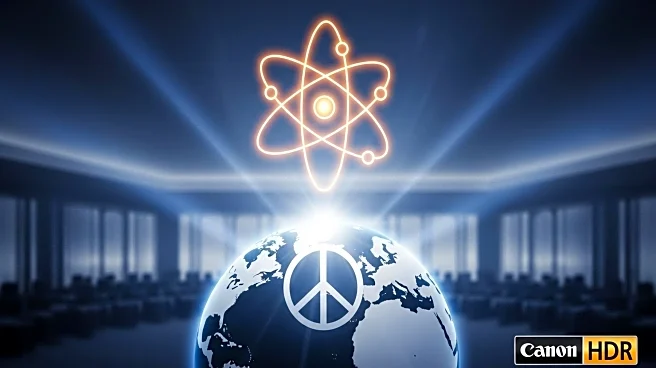What's Happening?
Iranian President Masoud Pezeshkian addressed the United Nations General Assembly, reiterating Iran's stance against developing nuclear weapons. He criticized the E3 countries—Britain, Germany, and France—for triggering the 'snapback' mechanism that could restore sanctions due to Iran's non-compliance with the 2015 nuclear deal. Pezeshkian accused these countries of acting in bad faith since the U.S. withdrawal from the accord in 2018. Despite recent agreements with the International Atomic Energy Agency to restore cooperation, tensions remain high as Iran faces potential sanctions.
Why It's Important?
The potential reimposition of sanctions on Iran could have significant economic and political implications. Sanctions would further strain Iran's economy, which is already facing challenges due to existing restrictions and internal mismanagement. The situation also impacts global diplomatic relations, as European countries and the U.S. navigate complex negotiations to prevent nuclear proliferation. Iran's commitment to a peaceful nuclear program is crucial for regional stability and international security.
What's Next?
Iran and European nations may continue diplomatic efforts to reach an agreement before the sanctions deadline. The outcome of these negotiations will determine whether sanctions are reinstated, affecting Iran's economy and international relations. The situation remains tense, with potential for both diplomatic breakthroughs and further escalation. Iran's actions and statements will be closely monitored by the international community.
Beyond the Headlines
The ongoing nuclear negotiations highlight ethical considerations regarding nuclear proliferation and the responsibilities of nations in ensuring global security. The situation also underscores cultural and political dynamics within Iran, as the country balances domestic pressures with international expectations.









